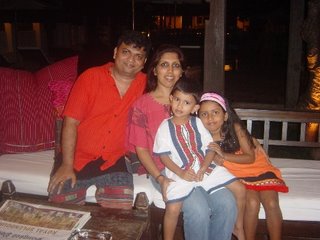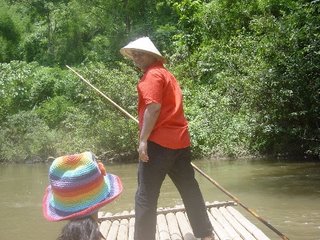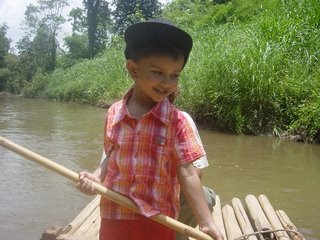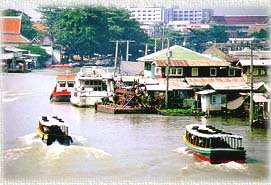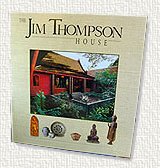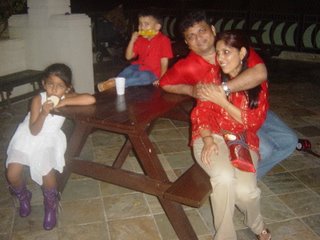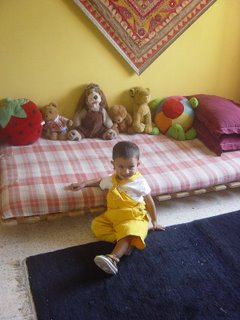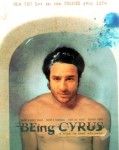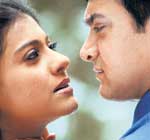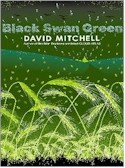For those of us who have been in the profession long enough to see tambola distributed with a newspaper, notes from owners telling us 'papers are like soap, it's the packaging that matters', to see Page 3 transform into Page 1, to watch the steady regression of one of the finest professions... this sobering piece couldn't have been more timely. A great read that provokes thoughts for a fine debate, sent to me courtesy Kana Gopal.
http://www.publicintegrity.org/icij/report.aspx?aid=730This address was given by Philip Knightley to nearly 70 members of The Center's International Consortium of Investigative Journalists in London.By Phillip KnightleyI tried for years to get on to Fleet Street and nearly gave up. Then, with one of those strokes of luck which all journalists need, in 1965 I wiggled my way on to the Sunday Times. I'd done one story for it as a freelance and had been given a spare desk and a telephone.
The next week I went in and sat at the vacant desk. After a day or two, someone noticed me and gave me another story to do. One week led to another and bang, there I was, a reporter on one of the world's great newspapers as it entered its finest years.
The Sunday Times had 350 editorial staff to produce a 48- or 64-page two-section quality broadsheet every week. It was so overstaffed that some journalists went weeks without getting anything published in the paper. In fact, some of them were not even SEEN for weeks. It spent money like water on investigative journalism - two million pounds on legal costs alone fighting for its right to publish the story about the thalidomide scandal. It was scared of no one. It averaged a libel writ a week. The editor, Harold Evans, was unhappy if a libel writ had not arrived by Tuesday, because he felt that the paper had not been doing its job - defending people without power from those who wielded it unfairly, exposing corruption, making a difference to the lives of ordinary citizens. Here was a paper that believed in something, which took enormous pains to get things right, and which fought for its editorial integrity.
One day, the owner of the paper, a Canadian called Lord Thomson, knocked on the editor's door while the morning news conference was in progress, said "hello", and then rather tentatively asked: "Say boys, would it be possible to squeeze in the Canadian ice hockey results each Sunday?" There was a moment of shocked silence. Then the deputy editor, Hugo Young, said, "Lord Thomson, this is an editorial news conference to which you've not been invited. If you'd like to put your suggestion in writing, I'm sure that the sports editor will be willing to consider it." And next morning there was a note to the editor from Lord Thomson apologising for attempting to influence the paper's editorial policy.
So this is my benchmark. It's against this golden age that I plan to measure the performance of the media today, especially newspapers - because I know more about them - and especially in the field of investigative reporting.
Now, everybody who has anything to do with newspapers - either as a producer or a consumer - has been aware for years now that something big has been going on in the industry, a sea change as deep and as radical as the arrival of the new technology in the 1980s. Newspaper circulations are declining all over the Western world. I emphasise "Western". In India, for example, they are soaring. Again, in the West, viewing figures for news and current affairs are down.
There is general public contempt for journalists. In the last five years half a million AB readers - educated top income group readers - have deserted the British quality press. OK, so they just changed papers, found the tabloids a quicker juicer read. I'm afraid not. They disappeared. It is an extraordinary fact that of the 11 million AB adults in Britain, the 11 million educated high-earners, about one-third do not read any daily newspaper whatsoever. All over the English-speaking world, many young people in all socio-economic classes have got out of the habit of reading newspapers.
In any other industry, if customers were vanishing at this rate there would be panic. But in the media industry it is only recently that hard questions are at last being asked. Le Monde, announcing an English-language version of Le Monde Diplomatique, turned on its own. "We all know that the media can no longer be trusted, that their performance is incompetent ... that they broadcast blatant lies as if they were manifest truths."
Is the media, particularly TV, in the business of "the mass production of ignorance"? Is it possible that the more TV news we watch, the less we know? There is a case to answer on both counts. If it is the media's job to interpret the world for us, why has the total output of factual programs on developing countries dropped by 50% in the past ten years - 50%!
Perhaps this has been due to the death of the old-fashioned foreign correspondent. You remember them, the expert in his or her area who had the language, knowledge and background not only to report on what was happening, but to explain why it was happening. Professor Virgil Hawkins of Osaka University suggests that technology has killed them off. He says that the process goes like this: greater competition among media giants leads to budget cuts, so resources for newsgathering are diverted to buying and maintaining hi-tech equipment. This means foreign correspondents are expected to cover larger areas of the globe, and in the process lose their specialist expertise. "They race from one humanitarian disaster to another, with little time or background knowledge to grasp the issues behind the conflicts they cover". This tends to produce highly emotional firsthand accounts, described by Claudio Monteiro of Leicester University in her analysis of the Portuguese media coverage of East Timor, as "good cause journalism ... journalism of affection", with the journalist as the hero of his or her own story.
Now, while all this has been happening, government interest in the media has intensified. It is as if governments realised, even before the TV and newspaper bosses, that the power, reach and influence of the modern media are enormous. The CNN News group is available to 800 million people across the globe, BBC World can be viewed in more than 167 million homes across 200 countries, al-Jazeera reaches at least 75 million viewers in the Muslim world alone. For any political party, the ability to 'handle the media' is these days seen as an essential element in gaining power and then, once in government, in maintaining it and carrying out policy. The old-fashioned government 'press officer' has gone. Governments now have a 'director of communications and strategy', whose job it is to manage the media and manipulate public perception of government actions.
The United States underpins its "hard" power - its awe-inspiring military capacity - with "soft" power - its ability to achieve its goals through the media; and its practitioners speak of a different world of journalism in which "global media strategy" and "international perception management" use journalists as pawns in the new "great game". In its updated foreign policy, Washington talks of "full-spectrum dominance": the US should aim to be top dog in all spheres - military, economic production, business, culture and, significantly, information.
In an ideal world, a free press and a curious, sceptical army of campaigning journalists should keep democracies and their leaders in line, especially today. And, almost as important, it should act as a check to the increasing power of corporations, especially international ones.
So what's stopping these journalists? What's gone wrong? The list is lengthy. Government propaganda and pressure. Pressure from corporations, including those which own newspapers and television stations. (Why didn't we realise earlier that the corporate world, so often the target for journalists, would one day find ways of fighting back.) Legal pressure. Social pressure. And professional self-pressure, for journalists themselves are not entirely without blame for the state of the media today. Let's deal with these pressures one by one.
Those in power who think about these things, have always been puzzled by this question: "If we can so successfully manage the media in wartime, why can't we do the same in peacetime?" There is no trouble doing so in autocratic regimes. The media tells the public what the government wants it to know. End of story. Newspapers and broadcasting stations that do not toe the line lose their licences, or their editors go to jail, or - in some extreme cases - are shot. This does not happen in democratic countries, but there are nevertheless ways open to governments to exercise some control of the media. The first and most often used is an appeal to 'the national interest'.
In the United States, the events of September 11 have been used as an argument to deter journalists who dared to criticise or question their home country. When three times in July 2002 the New York Times printed excerpts of secret Pentagon plans to invade Iraq and overthrow Saddam Hussein, the Bush administration accused the newspaper of "reckless reporting", "putting American lives at risk" and even "treason". But the distinguished journalist academic, our colleague Bill Kovach, says that it is precisely at times like these that journalists need to be even more diligent in the pursuit of truth: "A journalist is never more true to democracy, is never more engaged as a citizen, is never more patriotic than when aggressively doing the job of independently verifying the news of the day". At other times, the media has been willing to censor itself at the government's request. In 1986 the Washington Post editor, Benjamin C Bradlee, announced that in the first five months of that year the Post had, at the government's request, withheld information from stories a dozen times on the grounds of a risk to national security.
There are other ways of managing the media without using the "risk to national security" approach. The government of India adopts a carrot and stick tactic. The carrot can include subsidised housing in so-called "journalists' colonies", a government-paid trip abroad, a seat on an important government or semi-government committee, and even a posting as an ambassador. As the Pioneer newspaper of New Delhi says, "With rewards like these, who would want to needlessly antagonise the government?" Those who do find that the income tax inspector is suddenly paying close attention to the journalist's tax returns and taxation officers may even raid their homes and offices. All this is calculated to intimidate them.
Now the battle between government and the media is not new - it has gone on since the late 19th century when a rise in literacy created millions of new readers for newspapers and magazines, and made those in power worry whether this could cost them control of the electorate. What is new and worrying is the rise of legal pressure on the media to desist from subjecting both governments and corporations to investigation and public scrutiny.
High defamation damages have a knock-on effect in the way they inhibit investigative reporting. Chuck Lewis has told us the battle that the Center for Public Integrity and the ICIJ has to obtain libel insurance and fight off threat of what could be crippling libel actions. Just to remind you, many American insurance companies have a rule that if the insured media organisation has three libel actions pending against it - irrespective of the merit of those actions - its insurance policy becomes void. Without defamation insurance, the Center could not risk continuing its function - its insurance company has already paid out over US$1m in legal fees defending one case, which its lawyers say will eventually be thrown out of court. Lawyers, of course, know the 'three libel writs and you're out' rule. If they want to stop a story, one of the first things they do is to see how many writs a media organisation has outstanding, and if it is two, then they launch another one themselves knowing that, frivolous or not, this will effectively shut down the story.
American law firms, always keen to push the law to the limits to deter investigative journalists, have come up with new ploys that many consider even more effective than an action for defamation. They offer corporations and individuals 'pre-emptive strikes' against troublesome media. Their advice is along these lines: "when you learn that journalists are making enquiries about you, or when journalists approach you, do not wait until the news item is published or broadcast and then sue for defamation. The damage is already done. Hit back immediately and stop the item before it is published. We know ways of doing this."
The "ways" include examining the financial structure of the media organisation to see if pressure can be applied through a parent or associated company, analysing the advertising revenue of the company to see if a major advertiser can be persuaded to apply pressure, and compiling a dossier on the personal background of the investigating reporter to see if he or she can be intimidated into dropping the story.
Let's move on to professional self-pressure. The new technology drew attention to the cost of gathering news - as distinct from the cost of producing a newspaper or running a TV programme. The accountants - the people who now really run the media industry - moved to slash news-gathering budgets. All over the world, overseas news bureaux were closed, foreign correspondents called home.
All over the Western world, journalists, who should have been up in arms about the downgrading of foreign news, were seduced. Some became highly-paid columnists, celebrities in their own right, pushing their opinions rather than gathering facts. Or writers about lifestyle, relationships, gossip, travel, beauty, fashion, gardening and do-it-yourself which, although sometimes interesting in themselves, can hardly compare in importance with examining the human condition at the beginning of the 21st century, which is what serious journalists try to do.
One British proprietor has gone so far as to say he doesn't really need journalists on his newspapers. OK he admitted he needed a few to shovel the news into his papers and a celebrity writer or two. But the news itself he would 'buy in' from outside sources. Money spent on journalism, he said, was wasted. There was no way of measuring what difference extra editorial expenditure had on circulation. On the other hand, he boasted, you could measure exactly the difference made by spending more money on promotion. Spend half a million dollars on marketing and give away a free movie DVD with every copy of the paper and you could see how many extra copies you sold. It seems to be working because his last balance sheet revealed he was paying himself nearly $2m a week.
We are not complacent. We are prepared to look at our performance and try to do better. "Reporting the World", a project run by the Conflict and Peace Forums of Taplow Court, Buckinghamshire, has spent a lot of time and effort in getting around a conference table those journalists who have reported major conflicts and crises in recent years, and encouraging them to criticise each other's work in a constructive manner. More than 200 editors, writers, producers, and reporters helped to produce a practical check-list upholding the values of balance, fairness and responsibility in their coverage of international affairs. Most of these meetings were arranged by the European Centre of the Freedom Forum based in London. The centre's parent body, the Freedom Association of Arlington, Virginia, is a non-partisan foundation, a successor to one started in 1935 by publisher Frank E Gannett with the slogan: "a free press, free speech and free spirit for all people".
The London centre was a beacon for journalists of all colours, creeds and political beliefs, united by their concern that journalism should remain more than celebrity lifestyle, trivialisation, confessions and comic book stories. Now for the irony. Six weeks after 9/11, the parent body in the United States closed it down, saying that they needed the money for a news museum in downtown Washington!
So investigative journalism is not dead yet. Let's run through what we should be doing. We have to convince news organisations that there is more to journalism than profits and share price, that slick accountancy, cost cutting and spending money on promotion are not going to win an editor or a proprietor a place in the history books. We need a public interest defence in all legal actions brought against the media. Journalists should be able to defend a story by showing that what it revealed was so important to the public that everything else was irrelevant - something that, thanks to the European Court of Human Rights, the Sunday Times succeeded in doing in the thalidomide case. I mean, if a drug company is aggressively marketing a drug that deforms unborn babies, then how the journalist got the story and whether it defamed drug company executives - and even whether publication would damage that elusive concept, "the national interest" - has just got to take second place to informing the people.
We can support media that does investigative journalism, and stop buying media that does not. We can seek other sources of funding for our own investigations. And, if everything else fails, we can take the Jan Mayman path and somehow finance ourselves. We are not without power.



